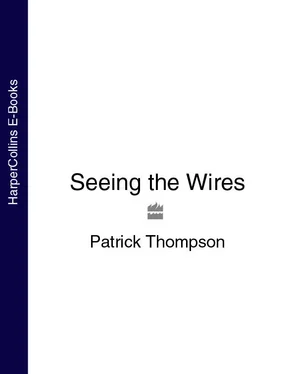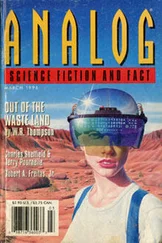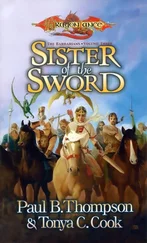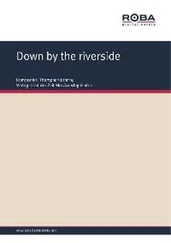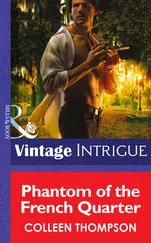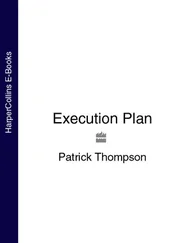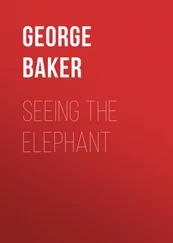‘By the kettle?’ asked Mr Link. ‘I don’t think so. Post comes to the office, not out here. Let’s have a look at it then.’
He opened the parcel and inspected the contents. His face grew bleaker. He was never exactly a bundle of joy, but this was as grim as I’d seen him.
‘I think we’ll be having a word with our student friend. Mr Haines, could I trouble you to pop out of that deep pit you’ve dug for yourself?’
I considered hiding.
‘There’s no point hiding down there, the foundations are square and we can find you. Come on.’
I dragged myself up to ground level and squished over to them. Mr Link raised the Grecian 2000 and looked at it.
‘Getting old isn’t funny,’ he said. ‘You’ll find that out one day.’
He looked at Spin. Spin gestured at length, and then held his sides.
‘Ah,’ said Mr Link. ‘I see. So this was a prank, then? This waste of company time? Bit of a laugh? I have nothing against a bit of a laugh.’
Spin raised his eyebrows.
‘Is this your idea of a joke?’ Mr Link asked me. I nodded.
‘Fair enough. Jokes happen on building sites. But I think we’ll have no more. And we’ll say no more about it,’ he said, surprising me. I’d expected to get the sack. Perhaps I really was the best temp they’d had. Anyway, it did the trick. It must have done. They only played one more joke on me.
To cut things short, I used to work on the building sites. After we finished that factory, we moved to the other side of town and put up a warehouse and then we did some office buildings in the classical warehouse style. My overdraft became smaller despite the best efforts of Mr Fallow and his staff. I worked on sites as far away as Wolverhampton and Tipton, despite the language barrier.
The buildings were always the same. I mean, they had different functions – this one was a hospital, this one an office, this one a luxury hotel with many and varied facilities – but they all looked like warehouses.
‘That,’ Mr Link would say, surveying whatever we had just finished bundling together, ‘is what a building is meant to look like. Square, straight, flat on the top and no fancy business.’
Darren and I had decided that Mr Link genuinely believed this. Strange beliefs and superstitions were common on building sites. Spin believed that scaffolding formed matrices that could tune in to otherworldly broadcasts. Darren believed that if he dug far enough down, his trench would connect with the mines that ran under Dudley and he’d be able to tunnel under the off-licence and get all his drinks for free. Mr Link believed that all buildings should be cuboid and without decoration or, ideally, doors and windows. I believed that I was at the beginning of my life and things would turn out okay without me putting much effort into it.
‘Square and straight,’ Mr Link would say. The rest of us would look at each other and try to get away. ‘Nothing fancy. Gargoyles and curlicues and all of that are all well and good for cathedrals, but the modern building is regular. Solid. No weaknesses in the structure.’
This was clearly untrue. In high winds the warehouses we put up fell apart, great sheets of prefab spinning off into the night like a giant conjuror’s playing cards. The structures were riddled with weaknesses, apart from the foundations. Those were solid.
‘Some of them fall down,’ Darren said.
Mr Link gave him a poisonous look. ‘That,’ he said slowly, ‘is because there are weak spots. Windows! Doors! How can we make a solid structure when there are parts of it that open ?’
‘It’s sort of fashionable to have doors and windows,’ said Darren.
Spin explained, by use of gestures, that it was traditional to have doors set into buildings so that people could enter and leave them.
‘That’s the thing,’ explained Mr Link. ‘If it was a decent building, they wouldn’t want to leave.’
Spin explained, by use of gestures, that he had thought of something else he could be doing. Darren and I went with him, leaving Mr Link looking at our latest construction – a theme pub on the main road between Stourbridge and Wolverley – and thinking how nice it would look without the windows spoiling the purity of the architectural line.
One morning, the building society sent me a letter including a monthly balance. There was a note of congratulation enclosed, signed by Mr Fallow. My account had become positive for several days. It had since become negative again, of course.
They charged me £15 for the congratulatory note.
The next month, there were more positive days. My account went from red to black, like an infected wound. I no longer needed to work on building sites to pay off my overdraft. I was able, instead, to look for a less well-paying graduate job.
I said a farewell to Mr Link and the gang on a Friday at the end of a bright and cold February. We went to the pub.
‘I knew you’d be going,’ said Mr Link. ‘You’ve been even less use than usual these last couple of months.’
I waited for him to say something good about my trench-digging abilities. He sipped his stout instead. Then he looked up.
‘I’m always sorry to see a good worker go,’ he said, ‘and I’m seeing one go now.’
I was startled and grateful. He caught my expression.
‘Bloody hell, not you,’ he said. ‘Our Spin here is leaving today. Got a job with local radio.’
Seemed about right, I thought. Spin had always had this thing about receiving signals.
I left the building trade and got a job with the local council. I can’t say which one, because they’ll sue. I worked in the banking section. This made me think of heavily defended vaults and leather-topped desks, for reasons known only to my subconscious. The reality was less impressive. In a large open-plan office – much like the interior of one of the buildings I used to dig foundations for – rows of desks were set regular distances apart. The distances had been chosen to minimize what the team leaders had learned to call Unauthorized Human Interaction, which is to say chatting. There was a lunch hour which it was mandatory to take but which, it was hinted, might better be used for working in. There was an agreeable overtime rate for which no one qualified. A shift system meant that you always had to get up too early and always got home too late. At Christmas a certain amount of jollity would be tolerated: a few strands of sparse tinsel stapled to the ceiling tiles for twelve days.
I would get in at 7.30 AM, regardless of which shift I was on, because I couldn’t afford a car and the bus service was unreliable. I would switch on my computer so that the people in IT would know I was there.
IT was housed on the top floor in a chaotic office full of dangling wires and tangled cables and parts of things that had become dislodged. IT was not subject to the same rules as other departments. IT had a different timescale. They would say, I’ll be there in five minutes. They would arrive in anything up to a month. Everyone wanted to work in IT but there was no way to get there without having arcane and detailed knowledge of Babylon 5.
After logging in, I would look out of a window until nine when a few other people would start to trickle in. I would open up a spreadsheet or two and mess about with figures.
I would do that for eight hours. Then I would go home.
I once asked the man at the next desk to mine – a breach of council policy but I was in a daredevil sort of a mood – what happened to all of the figures we put into spreadsheets.
‘Well,’ he said, pushing his spectacles onto his nose, ‘when we finish each sheet they are amalgamated into another spreadsheet and ratified against a third spreadsheet held at head office. If they match, they are themselves amalgamated into another spreadsheet. Each of these transactions is logged on a fifth spreadsheet. This fifth spreadsheet is checked against the performance timetable laid down in the spreadsheet kept at area headquarters, and then the results of all of these cross-checks are entered into a spreadsheet.’
Читать дальше
